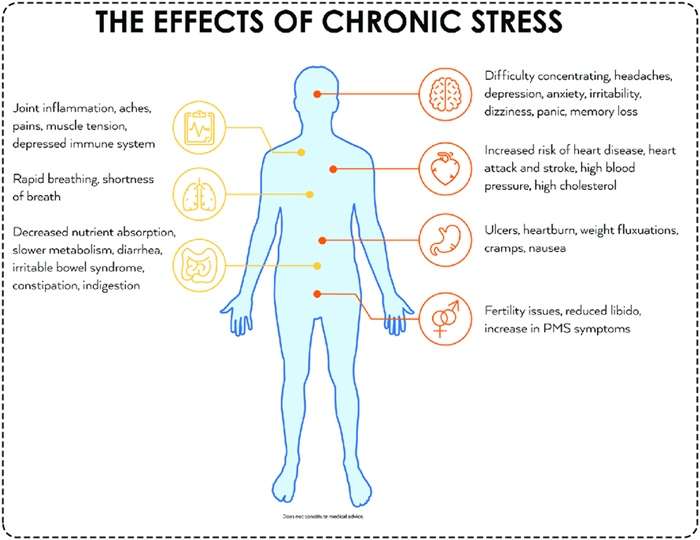Chronic Stress in Air Traffic Controllers: Causes, Consequences, and Solutions
Being an air traffic controller is often cited as one of the most stressful occupations, requiring intense concentration, quick decision-making, and unwavering precision. The stakes are high, with the safety of countless passengers depending on each decision made in the control tower. This constant pressure can lead to significant stress, and when experienced over prolonged periods, it can manifest as chronic stress. In this article, we will explore what stress and chronic stress entail, the specific causes and consequences for air traffic controllers, and the measures that can be taken to mitigate these effects. Understanding and addressing chronic stress in this profession is vital not only for the well-being of the controllers but also for the overall safety and efficiency of air travel.
Understanding Stress
Stress is a natural response of the body to any demand or threat. When faced with a challenging situation, the body releases hormones such as adrenaline and cortisol, preparing for a “fight or flight” response. While stress can be beneficial in short bursts, helping individuals to focus and perform under pressure, prolonged exposure to stress can lead to adverse health effects.
What is Chronic Stress?
Chronic stress occurs when stressors are constant and persist over an extended period. Unlike acute stress, which is short-term, chronic stress can disrupt nearly every system in the body. It can lead to various physical and mental health problems, including anxiety, depression, cardiovascular disease, and a weakened immune system.
Causes and Consequences of Chronic Stress
Chronic stress can be caused by various factors, including high-pressure work environments, personal issues, financial troubles, and health problems. The consequences of chronic stress are significant and can affect overall well-being. Symptoms may include headaches, fatigue, difficulty concentrating, irritability, and sleep disturbances. Long-term effects can lead to serious conditions such as hypertension, diabetes, and mental health disorders.

Stress in Air Traffic Controllers
Air traffic controllers (ATCs) work in one of the most stressful professions. They are responsible for ensuring the safe and efficient movement of aircraft, requiring constant concentration, quick decision-making, and effective communication. The high-stakes nature of the job means that any error can have severe consequences, increasing the pressure on ATCs.
Can Air Traffic Controllers Experience Chronic Stress?
Yes, air traffic controllers working in intensive units can experience chronic stress due to the demanding nature of their job. The need to maintain high levels of concentration for extended periods, manage multiple aircraft simultaneously, and respond swiftly to emergencies can contribute to significant stress levels. Over time, this continuous pressure can lead to chronic stress if not properly managed.
Precautions to Mitigate Stress
Several precautions can be taken to mitigate stress for air traffic controllers:
- Work-Life Balance: Encouraging a healthy balance between work and personal life can help reduce stress levels.
- Regular Breaks: Ensuring ATCs take regular breaks to rest and recharge can prevent burnout.
- Support Systems: Providing access to mental health support, counseling, and stress management programs can help controllers cope with stress.
- Training: Ongoing training in stress management techniques and relaxation exercises can be beneficial.
- Healthy Lifestyle: Promoting a healthy lifestyle with proper nutrition, exercise, and sleep can enhance overall resilience to stress.
Identifying Chronic Stress in Controllers
To determine whether a controller is experiencing chronic stress, several indicators can be monitored:
- Behavioral Changes: Noticeable changes in behavior, such as increased irritability, withdrawal from social interactions, or decreased job performance.
- Physical Symptoms: Persistent headaches, gastrointestinal issues, fatigue, and sleep disturbances.
- Emotional Signs: Feelings of overwhelm, anxiety, depression, or mood swings.
- Cognitive Effects: Difficulty concentrating, memory problems, and impaired decision-making abilities.
Regular assessments and open communication channels can help identify stress early and provide necessary interventions to support the well-being of air traffic controllers.
Conclusion
Being an air traffic controller is undoubtedly a stressful job. Understanding what stress and chronic stress entail, recognizing the causes and consequences, and implementing precautions can help manage stress levels in this demanding profession. Ensuring the mental and physical health of air traffic controllers is crucial for their well-being and the safety of the aviation industry.
References and Further Reading
- National Institute of Mental Health – 5 Things You Should Know About Stress
https://www.nimh.nih.gov/health/publications/stress - American Psychological Association – Stress Effects on the Body
https://www.apa.org/topics/stress/body - Federal Aviation Administration – Air Traffic Control Specialist Training and Stress Management
https://www.faa.gov/training_testing/training/atc - Centers for Disease Control and Prevention – Stress and Health
https://www.cdc.gov/niosh/topics/stress - Mayo Clinic – Chronic Stress: Can It Cause Severe Health Problems?
https://www.mayoclinic.org/healthy-lifestyle/stress-management/expert-answers/chronic-stress/faq-20058221 - Journal of Air Traffic Control – Managing Stress in the Control Room
https://www.atca.org/publications/journal-of-air-traffic-control - European Agency for Safety and Health at Work – Work-Related Stress
https://osha.europa.eu/en/themes/psychosocial-risks-and-stress - Harvard Health Publishing – Understanding the Stress Response
https://www.health.harvard.edu/staying-healthy/understanding-the-stress-response


